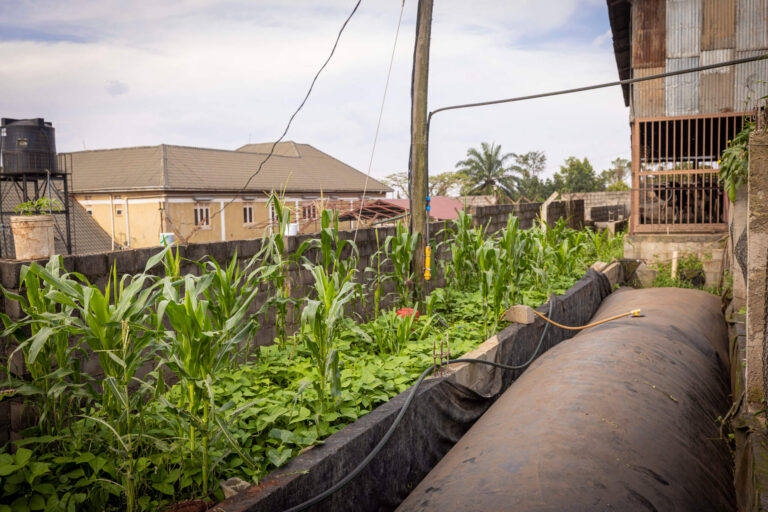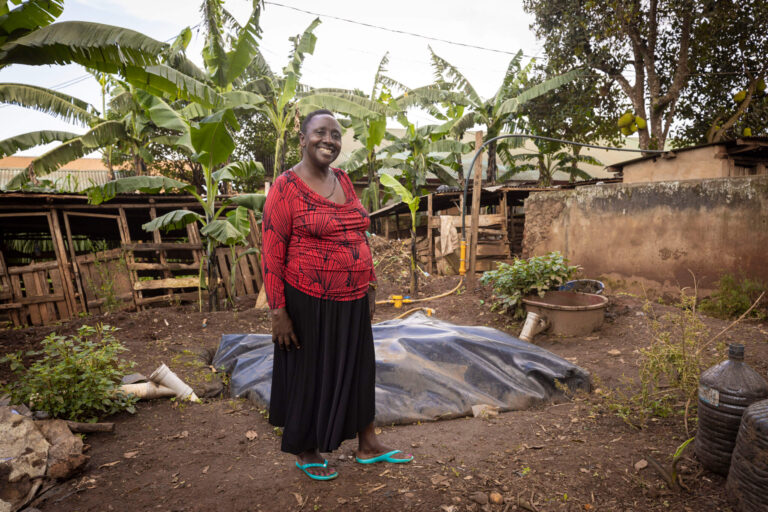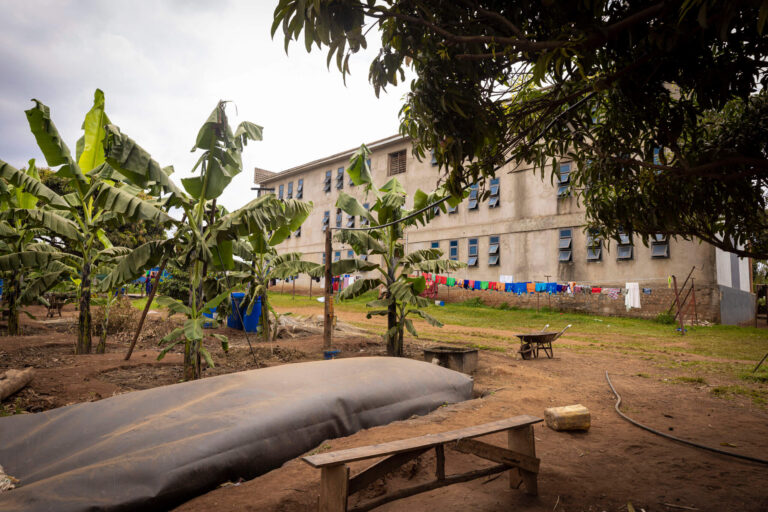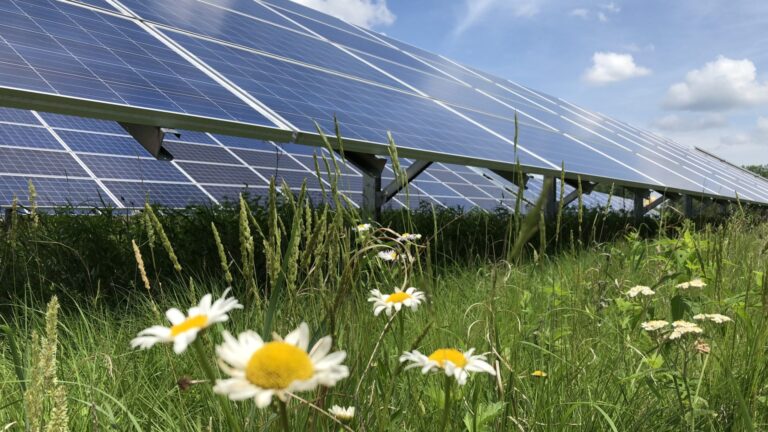
Story
From Waste to Fuel
Climate Action
Designtex’s 14th carbon offsetting initiative revolutionizes traditional farming practices to improve livelihoods in Uganda
As a company that designs and distributes materials, Designtex recognizes that its facilities, product shipments, business travel, employee commuting, and waste, all produce greenhouse gas emissions. Since 2010, Designtex has actively invested in carbon reduction projects across the globe to balance its operational footprint to zero. Through such efforts, Designtex is able to support projects that create new renewable energy and facilitate carbon reduction, while helping local communities reap the social and environmental benefits as well.
In 2023, Designtex added its 14th initiative to its roster of climate actions. “From Waste to Fuel” is a methane avoidance and fuel switching project in Uganda that provides small family farms with biodigesters, which help transform organic waste into biofuel for cooking and organic fertilizer to increase crop yields and help improve livelihoods. The project will see over 10,000 biodigester and cookstove systems distributed in the region in the coming years, and provide families with new, effective farming technology while also supporting them with installation, training and maintenance service.
As one of the first supporters of this multifaceted initiative, Designtex is playing a pivotal role in helping to revolutionize traditional farming practices. Streamlined and easy to use, the “Waste to Fuel” project first directs farmers to put livestock waste into their biodigester, where methane emissions are captured. Methane from the biodigester is then piped into gas-efficient stoves and used for home cooking. This biogas replaces the need for wood fuel, which is typically used for cooking and contributes to respiratory issues, greenhouse gas emissions, and deforestation. Finally, the transformation of organic waste also produces organic fertilizer as a byproduct, which can be used to improve crop health and yields.
Over the course of the decade-long project, over 10,000 farming households in the coffee and sugar growing regions are estimated to participate and contribute to the reduction of carbon emissions. The initiative is also expected to greatly improve the wellbeing of women in the region, who are primarily responsible for cooking and sourcing wood as fuel. With more time saved, they are able to invest in their personal, and their families’, wellbeing and livelihoods.
Explore our commitments to climate, material health and sustainability
-

A local Ugandan farmer and small biodigester
-

A biodigester at MST Junior School in Kawuku Bwerenga, Uganda produces fuel for the cafeteria cookstoves and school water heaters, as well as fertilizer for the school garden



